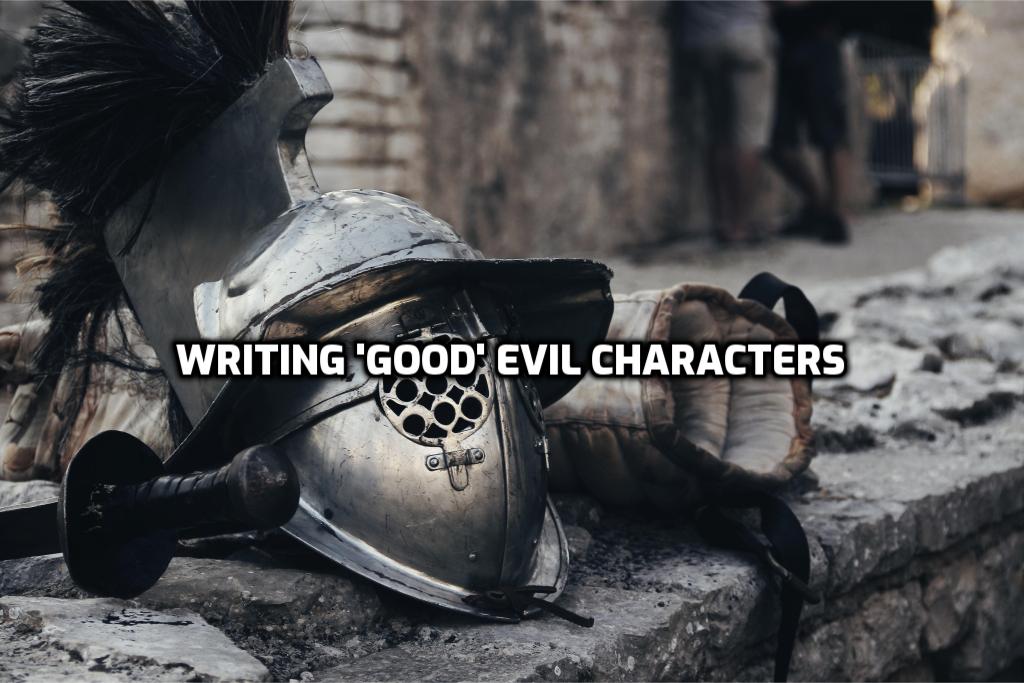I wanted to write about villains lately (as obviously, that’s been what’s on my mind for the most part… for good reason, don’t judge). This is the result of my own understanding about how humans actually work, think and do things that sometimes we do not understand ourselves (could easily work the same for magic creatures too).
We tend to forget that villains are not made of evil. They are normal beings, and evil is just what they do. Once we establish that fact into the minds of the readers, then and only then you will have a villain worthy of a thousand tale! Below are some tips that I wanted to share with you!
1. Backstory, and Background
The first important aspect of every good villain, is a good backstory. Let’s say for example, therein the world of Eisena (literally just made that up, sorry if sounds weird) is a villain that was cursed by the Kings of Old to roam the underworld unappreciated and alone. Want to add more depth? When traversing there, they learn of a secret conspiracy that combined some close friends. Betrayed, defeated and left for dead, they were offered a chance to rectify that mistake and they swore that humanity would pay the price. That such a world cannot hope to exist… why? Because if it was, they would be stopped. If the world was strong enough, they would stop them. What is the point here? Deep down, the villain WANTS to be stopped. They are just doing this as a statement. Adding a plot twist here and there as well can do wonders (make him the Crown Prince of the biggest Kingdom, and their brother organized this whole thing to get him out of the way).
The biggest mistake writers sometimes make when doing this, is that the motivation behind villains is just plain shallow (I.E he wants to get the legendary crystal, and use it for world domination… sure but why? Is there any reason why he believes he can do a better job than the current occupant of the position? Or is there something to it?). I think evil characterizes with choices, because bottom-line, the only difference is just the line that Evil can break, and Good cannot. They make choices, villains just choose differently.
2. Clear Motives, and Strong Character
Keep in mind, this may differ when writing a mystery novel or something similar, but readers can’t get confused. They must be able to tell who is the villain and basically know what motivates them (we talked about this a bit in the previous point). There was an instant where I introduced a character and purposely made him so vulgar, rude and arrogant that it was nearly impossible for anyone to have any sort of connection with him. But then the magic starts, the journey to turn him into a likable character, or at least to have readers understand just why he is so despicable.
I spent a good amount of time writing this character and I was enjoying every second, and let me tell you… I had fun, showing some sides that humanizes the villain is a very important aspect as well. For example, in this instant, the villain went on and on looking for the protagonist just to slaughter him (meanwhile, he would battle and kill as many followers of the protagonist as he found) but then we learn the true reason why he holds such hatred. His daughter was killed in a proxy war that the protagonist started. Just look at real life, no matter how crazy or vile someone is… they are bound to have followers around them. Ever wondered why? Because the closer they are, the more convincing the arguments.
3. Sense of Danger
Imagine a scene, where the hero of the story is captured by bandits or pirates, and the villain comes to the hero’s rescue… How embarrassing would it be for the hero? Or better yet, you could shape it that he didn’t know who saved him. Have the villain toy with the MC as Red John did to Patrick Jane on the Mentalist, you know, have the reader worry about the protagonist! They have to be so terrified, that they think once the two meet, that’ll just be the end of the book as they know it.
This can be achieved through different methods as well, give the antagonist a clear advantage (IE. he could be a professor gone mad, or a military genius), something that the protagonist cannot hope to compete with, and has to come up with interesting plans or a grand finale that forces him out of the comfort zone. Perhaps the hero chooses to do a lesser evil for the greater good, by choosing to murder the antagonist in a vile and gruesome way. Have them cheat, for example, they result to trickery and somehow convince the villain to kill themselves (in a mystery novel per say, where the hero simply cannot find anything to incriminate the villain, chooses to simply “fake” evidence and present them as truth).
I’ll be sure to write another part about this, but for now, let me know if these tips will help you or how they will impact your writing process; I’m really interested.
Until next time,
Write on.

One comment on “Writing ‘GOOD’ Evil Characters”
So many authors seem confused when it comes to character development for the bad or evil character it is good to be able to have help from a established writer. Thank you mike the mailman